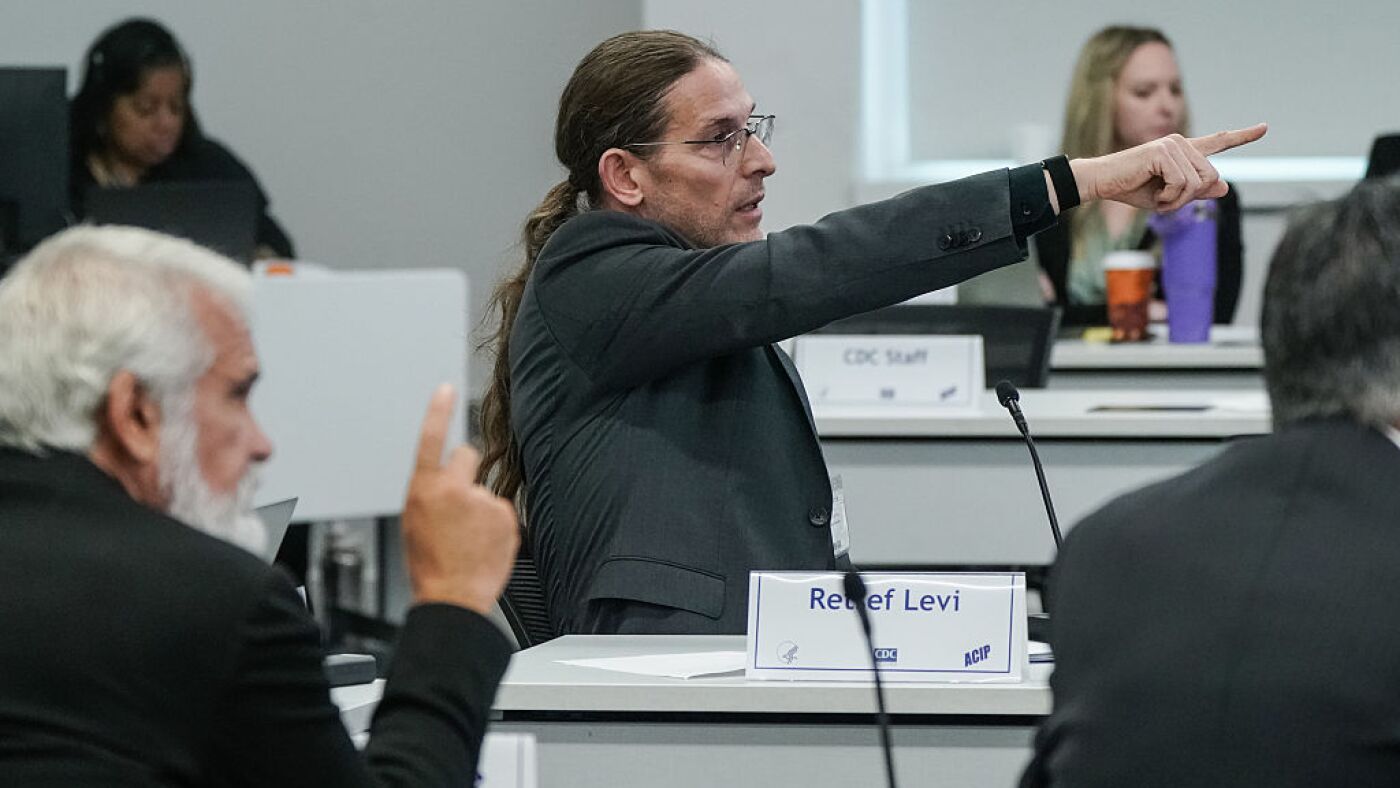In recent developments concerning COVID-19 vaccine access, the Advisory Committee on Immunization Practices (ACIP) has introduced new guidelines that complicate the process for obtaining vaccines. These changes arise amid ongoing debates about vaccine safety and efficacy, further fueled by the current political landscape under Health Secretary Robert F. Kennedy Jr.
The issues surrounding vaccine access were vividly illustrated during a chaotic ACIP meeting held on September 18, 2025, in Atlanta, Georgia. Members grappled with technical difficulties and passionate disagreements, reflecting the tensions within the committee. The most controversial proposal considered during the session was the introduction of a requirement for individuals to obtain a prescription to receive a COVID-19 vaccine, a move that could have created significant barriers for many seeking vaccination.
Ultimately, the vote on this proposal ended in a tie, with ACIP chairman Martin Kulldorff casting the deciding vote against it. However, the committee did endorse vaccination recommendations for adults aged 65 and older and encouraged younger individuals to engage in “shared decision-making” with healthcare providers. This means that those under 65 will need to discuss the potential risks and benefits of vaccination with clinicians, emphasizing that the advantages are more pronounced for individuals with higher risk profiles for severe illness.
For children over six months of age, the new guidelines do not restrict access, but they introduce the requirement for a clinician consultation. This shift has drawn criticism from various medical experts who argue it undermines the prior consensus on vaccination access.
Moreover, the ACIP agreed to update information sheets regarding COVID-19 vaccines to include speculative risks and uncertainties about their efficacy. Critics, including Dr. Sandra Fryhofer from the American Medical Association, expressed concern that the committee’s integrity is waning. They claim that the process for deriving vaccine recommendations has become increasingly politicized and less transparent, potentially undermining public trust in vaccination efforts.
These new recommendations follow an earlier vote to restrict the MMRV vaccine access for children under four years. Despite attempts to modify vaccine accessibility further, other proposed changes, like removing the recommendation for infants to receive the hepatitis B vaccine at birth, did not progress.
The recent adjustments in guidelines are not occurring in isolation but are part of a broader agenda to reshape vaccine policy in the U.S. Following the dismissal of the previous ACIP members appointed during the Biden administration, Kennedy has instated a new panel that includes individuals with a history of skepticism towards vaccines, particularly those related to COVID-19. This reconfiguration raises questions about the objectivity of the decisions being made and the motivations behind them.
Retsef Levi, an MIT professor who prominently influenced the recent discussions, noted the public’s waning faith in the narrative of vaccines being “safe and effective.” His remarks echo sentiments prevalent among some sections of the public and have sparked further debate within medical circles about the responsibility of health officials in conveying vaccine safety.
The recent tumult surrounding COVID-19 vaccine guidelines underscores the complexity of navigating public health in a politically charged environment. With stark divisions emerging amongst healthcare professionals and policymakers, there is a growing concern that decisions on vaccine access may not solely be based on scientific evidence but instead be filtered through political ideologies.
As the CDC weighs these recommendations, the situation remains fluid. While the agency typically adopts ACIP recommendations, final actions will depend on the sign-off by acting CDC director Jim O’Neill. This ambiguity adds another layer of uncertainty for individuals seeking vaccination and for healthcare providers navigating these evolving guidelines.
In conclusion, the changing landscape of COVID-19 vaccine recommendations reflects broader societal debates concerning vaccine safety, individual choice, and public health policy. While the ACIP aims to reinforce safety measures and improve decision-making processes, many in the medical community are anxious about the potential implications for public trust and healthcare accessibility. As these discussions continue, it is vital for transparent communication between health officials and the public to regain confidence in vaccination, particularly as new variants of the virus emerge and the global fight against COVID-19 endures.
In navigating this increasingly complicated terrain, it becomes essential to balance patient autonomy with public health imperatives to ensure that vaccination remains a cornerstone of disease prevention, and that equitable access to vaccines is upheld. The implications of these recommendations will not only influence individual health but also public health as a whole, necessitating continuous dialogue and research to address emerging concerns and to restore faith in vaccination efforts.
Source link










